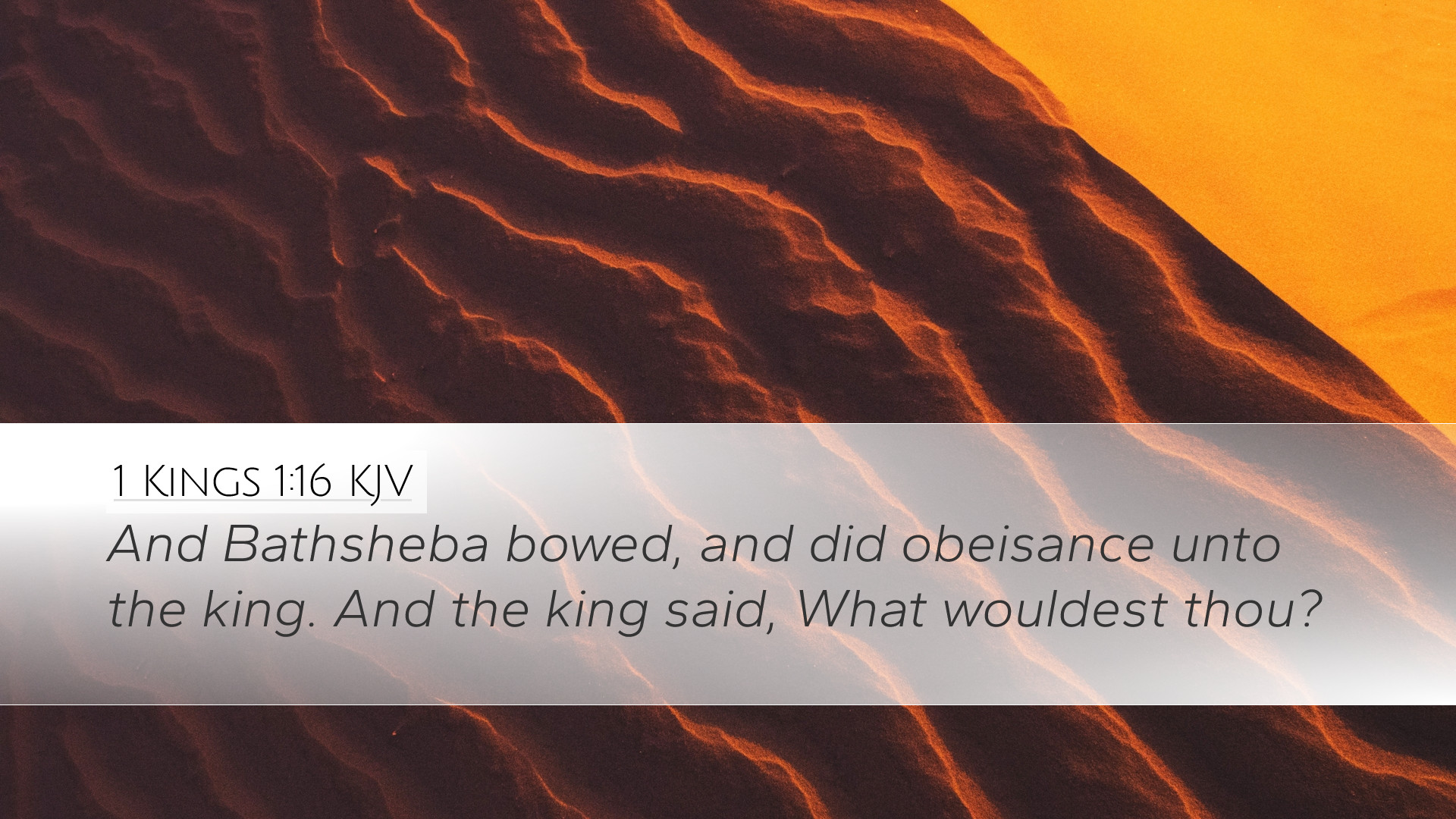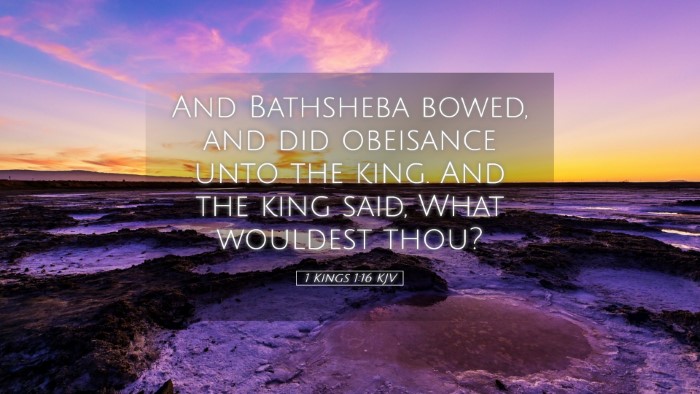Commentary on 1 Kings 1:16
Verse Context: 1 Kings 1:16 records the moment when Bathsheba, the mother of Solomon, approaches King David to intercede for her son amidst the throne succession struggles.
Overview of the Passage
The verse states:
"And Bathsheba bowed, and did obeisance unto the king. And the king said, What is thou?"
This moment captures a mix of reverence and urgency in Bathsheba's actions, revealing the political tension surrounding the imminent transfer of power.
Commentary Insights
Matthew Henry's Commentary
Matthew Henry emphasizes the noble intent of Bathsheba. His observation highlights the precarious situation that Bathsheba finds herself in, as she recognizes the need to act decisively for her son's future.
He notes:
"Bathsheba exemplifies a virtuous mother who, in her attempt to secure the throne for Solomon, employs wisdom and caution in her approach to King David."
Henry explains that her act of obeisance carries a dual significance: it signifies both her respect for the king and the gravity of her request. The bowing down emphasizes humility while also implying the urgency of her plea.
Albert Barnes' Notes
Albert Barnes provides a reflection on the political implications of the narrative. He highlights how Bathsheba’s approach was not merely a personal request but rather a pivotal moment in the broader context of Israel's leadership struggles.
Barnes points out:
"This represents a critical juncture where the fading authority of David is juxtaposed against the rising significance of Solomon. Bathsheba’s plea is a reminder of the delicate balance of power in the royal court."
Barnes also notes that David's question, "What is thou?" indicates a king's obligation to hear the concerns of his subjects, further emphasizing the importance of governance through careful listening and consideration.
Adam Clarke's Commentary
Adam Clarke focuses on the emotional aspect of Bathsheba's approach. He analyzes her desperation and determination, suggesting that her actions stem from a place of deep love and protection for her son.
Clarke articulates:
"In Bathsheba's bowing before the king lies not just physical submission but the embodiment of a mother's heart; she bears the weight of her son's future on her shoulders."
He further explores the cultural implications of her actions, considering the societal norms of the period regarding female influence and authority. Clarke attributes significant agency to Bathsheba’s character which starkly contrasts with the expected roles during the times.
Theological Reflections
This verse holds profound theological implications related to authority, humility, and divine providence.
- Authority: The scene illustrates the nature of authority in the biblical narrative, emphasizing that legitimate leadership must engage with the needs of its constituents.
- Humility and Respect: Bathsheba’s respectful approach demonstrates the importance of humility in addressing those in power, reflecting a model of interpersonal relations that honors both parties.
- Divine Providence: Her plea signifies trust in God’s plan for her son, reminding readers of God’s sovereignty even amid human affairs and political intrigue.
Practical Applications
This verse encourages pastors and theologians to reflect on the nature of advocacy and support within their communities.
- Encourage Advocacy: Recognize and nurture those who advocate for others’ well-being. Like Bathsheba, they can influence circumstances positively.
- Model Leadership: Leaders are encouraged to embody the qualities of King David, who, though old, still seeks to be engaged in his role as a decision-maker.
- Value Relationships: The relational dynamics illustrated in this passage serve to remind us of the importance of fostering genuine relationships built on respect and understanding.
Conclusion
The intercession of Bathsheba in 1 Kings 1:16 is more than a moment in history; it reflects the complexities of leadership, motherhood, and divine intervention. As we dissect this richness through the lenses of esteemed commentators, we find lasting truths applicable to our contemporary Christian context.


